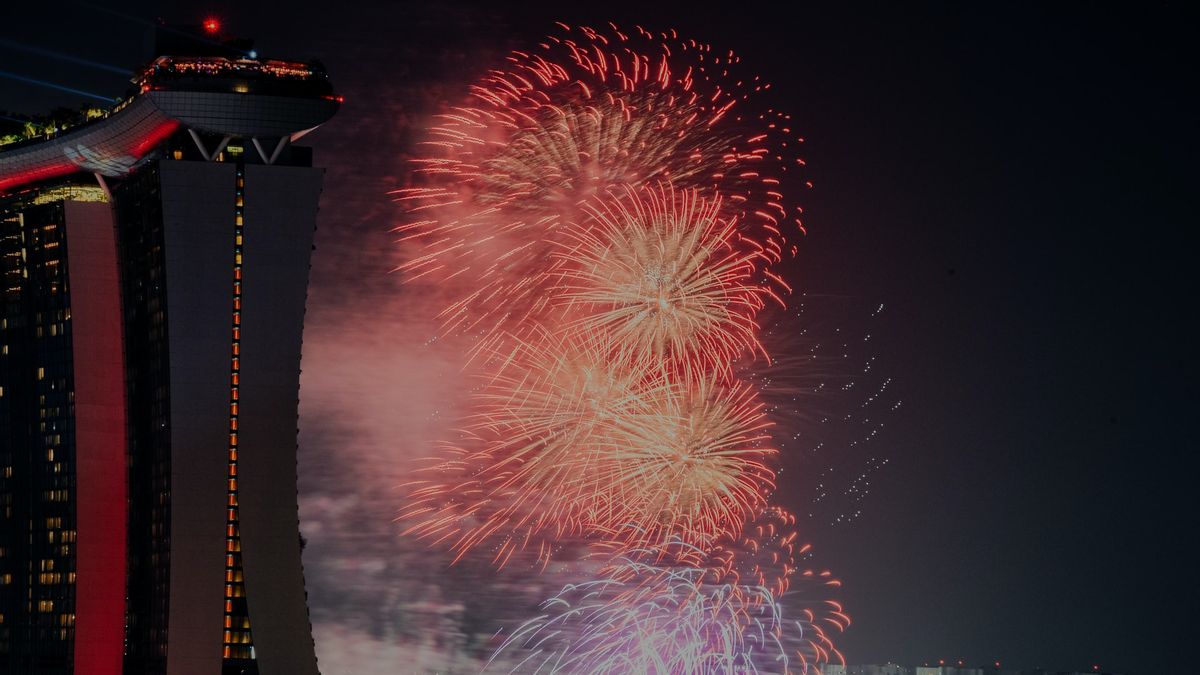JAKARTA - The German public is ordered to prepare for the ban on lighting fireworks in celebration of the new year. Yet the new year is the only moment of the year when private individuals are legally permitted to buy fireworks.
To quote The Guardian, Tuesday, November 24, political leaders are expected to announce the ban on Wednesday, November 25. The sale of fireworks, which are usually sold three days before New Year's Eve, will also be banned for the first time.
The reason was that the authorities were not prepared for the risk of a fireworks display that might require medical attention. Even though hospitals are currently still overwhelmed with handling COVID-19 patients.
Around 200 million euros is usually spent on making fireworks. Entire fireworks will be detonated in various places, from balconies of houses to public gardens, between 6pm on 31 December and 7am on 1 January.
But the tradition also caused a large number of injuries, even fatalities. Hospitals are currently becoming overwhelmed by the high number of COVID-19 cases, including an increase in the number of patients requiring intensive care.
Lawmakers and doctors have said it would be irresponsible to let the new year celebrations go on. The news was welcomed by the anti-fireworks campaigners. They consider that besides being a threat to public health, fireworks cause air pollution with large enough fine particles.
Pollution from fireworks is also a threat to animal health and creates a lot of litter. The fireworks ban also coincides with the stopping of the opening of a popular Christmas market in Germany, which usually attracts hundreds of thousands of tourists from November onwards.
The two bans are part of a broad plan that is expected to be formally agreed upon at the time of the "Corona Summit" between 16 German länder (region) leaders and federal chancellor, Angela Merkel. The restrictions are also expected to be extended.
It is understood the extension will maintain the restrictions until December 20, allowing for a brief easing over the Christmas period, before being tightened again until around mid-January. Berlin Mayor Michael Müller, currently head of the leaders' conference of nations, presented his draft decision.
"We agree that a lot has been achieved, but not enough." The leaders agreed that while growth in the number of cases appears to have stalled since tighter measures were put in place on November 2, the current figure is still too high.
The decision will also hit restaurants, bars, cinemas and beauty salons, which hope to reopen in December. Between 21-27 December, hotels are allowed to open so that people visiting the family have the option to stay elsewhere. It is recommended that each guest only consists of a maximum of 10 people, not including those under 14 years of age.
Work activities were also asked to close whenever possible between December 21 and January 3 to allow as many people as possible to follow the government's recommendation to stay at home. German Health Minister Jens Spahn said that he expected the possibility of starting vaccinating people in Germany in early December.
On Friday, November 20, Germany had 23,648 new cases. More than 21,200 intensive care beds are currently occupied, and only 12,000 spare beds are available.
The English, Chinese, Japanese, Arabic, and French versions are automatically generated by the AI. So there may still be inaccuracies in translating, please always see Indonesian as our main language. (system supported by DigitalSiber.id)













